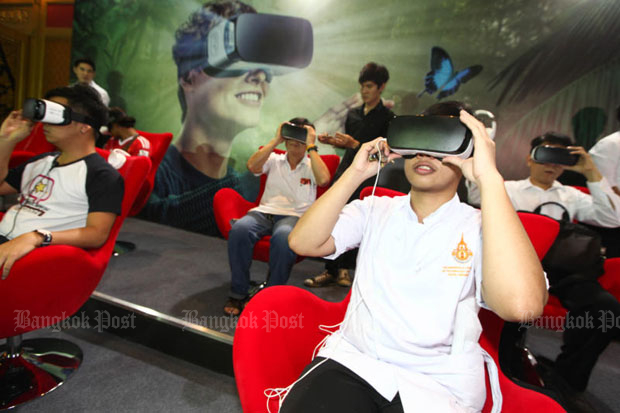
Generation Z students are feeling unprepared for the problems the "real world" faces today, and want a greater focus on creativity and hands-on learning in the classroom, according to Adobe's study on "Gen Z in the Classroom: Creating the Future".
The study of 250 Gen Z students -- those aged between 11 and 17 -- and 100 teachers in Thailand found that 97% of students and 99% of teachers see creativity as essential to students' future success. Some 75% of students believe their future careers will involve creating, and 97% of teachers feel their Gen Z students will have careers that do not exist today.
Gen Z students also shared that classes focusing on computers and technology are not only among their favourites to take, but also hone their creativity, and will best prepare them for their futures.
"Gen Z students in Thailand have grown up in a tech-enabled and information-driven world. Access to technology and digital tools has offered unprecedented opportunities for them to explore their curiosity, draw inspiration from others and efficiently express their own creativity," said Janie Lim, senior director of marketing for digital media, Adobe Asia-Pacific.
The way Gen Z students consume and learn today is very different from past generations. Educators in Thailand need to provide the right environment, updated tools and creative outlets to bring out the best in their students and foster innovative problem-solving skills for the future workforce, said Adobe.
While excited about their prospects, Gen Z students in Thailand who see themselves as creative, original and curious express nervousness about their future careers. Almost one-third of Gen Z students surveyed feel unprepared for the future, and more than half feel what they learn outside of the classroom is more important to their future careers than what they learn inside.
Although Gen Z students in Thailand see themselves as more creative than past generations (the highest among Asia-Pacific countries surveyed), they said that they generally learn best through a doing/creating approach (72%), while teachers considered having students watch and learn as the best teaching method (77%). This perspective correlates with the 77% of educators who look for more opportunities for hands-on learning, and the 60% who wish to incorporate more technology in their classrooms.
Bundit Sriputtangul, chief general-inspector at the Ministry of Education, said the education system traditionally tends to be more teacher-focused, with limited learning and teaching resources for students to develop creativity and individuality in either hard or soft skills.
"Nowadays, as the government looks to reform our education system to keep up with the global demands of the changing workforce, it becomes increasingly important for schools and educators to improve access to technology and digital tools that will help our students learn more effectively and positively, encouraging them to be more creative and prepared for their future careers," he said.
Key findings in the study include:
95% of students and 100% of teachers wish there was more of a focus on creativity in the classroom
97% of students and 99% of teachers see creativity as essential to students' future success
98% of students and teachers view technology savviness as key to the students' career preparedness
75% of students believe their future careers will involve creating
28% of students feel unprepared for the real world, and 23% of teachers agree
72% of students and 67% of teachers believe Gen Z learns best by creating and hands-on experiences
The study was produced by research firm Edelman Intelligence and conducted as an online survey from Sept 21–Oct 5.
